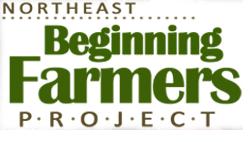 While many small farmers use “all-natural” or “sustainable” practices, going the distance to certify your farm as organic–with the paperwork, annual inspection, and expense required–often feels like an overwhelming step. But for many farmers, the price premium received would increase profits. What do you need to do to become certified organic? Is it worth it for your farm? Do your practices qualify, or would you need to make changes?
While many small farmers use “all-natural” or “sustainable” practices, going the distance to certify your farm as organic–with the paperwork, annual inspection, and expense required–often feels like an overwhelming step. But for many farmers, the price premium received would increase profits. What do you need to do to become certified organic? Is it worth it for your farm? Do your practices qualify, or would you need to make changes?
A new online course will help you answer these questions and more. BF 106: Organic Certification – What, How, and Why (or Why Not) is offered by the Cornell University Small Farms Program and Cooperative Extension, in partnership with Northeast Organic Farming Association, LLC (the certification branch of NOFA). The course will run through the month of October, Oct 2 – 30. Tuesday evening webinars will provide the opportunity to hear directly from certified organic farmers about the requirements they have to meet, why certification works for them and how they manage the paperwork. This course will also introduce you to resources to help you navigate the certification process. It is designed both for new and experienced crop and livestock farmers who are contemplating organic certification.
Registration closes Sept. 24, so sign up now to be sure you don’t miss this once-a-year opportunity. View more details and registration information at http://nebeginningfarmers.org/online-courses/all-courses/bf-106-organic-certification/